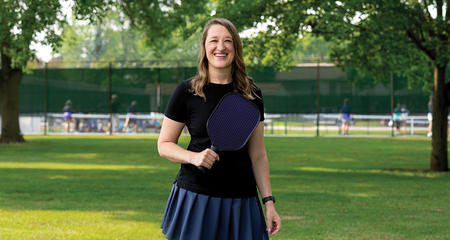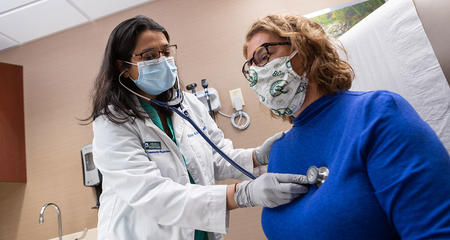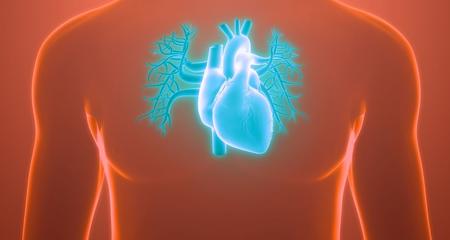Our team of physician specialists is pleased to offer cryoballoon ablation treatment for patients with certain types of atrial fibrillation (AFib or AF) This minimally invasive technique is especially effective in treating paroxysmal atrial fibrillation (PAF), in which AFib symptoms occur intermittently. Cryoballoon ablation is a form of catheter ablation which uses cryo, or freezing, energy rather than heat to precisely disable heart tissue that causes irregular heartbeats.
Safe with low risk for complications, cryoballoon ablation can be simpler to perform than other ablation procedures because it does not require the use of complex, three-dimensional mapping systems. The equipment was designed specifically to help electrophysiologists reach and treat tissue quickly and efficiently. The balloon design offers the ability to treat larger areas of tissue at the same time, also simplifying the procedure.
Your team will give you instructions to prepare for your cryoballoon ablation procedure. In most cases, you will not be able to eat or drink anything after midnight. Ask about whether you should continue to take any medications. You may need pre-procedure imaging such as an transesophageal echocardiogram (TEE) or an MRI.
About Cryoballoon Ablation
As with other forms of catheter ablation, the electrophysiologist will start the procedure by making a small puncture in the groin area, leg or arm so that a catheter can be inserted. A local anesthetic is used to numb the area. The physician will thread the catheter to the left atrium of the heart and the cryoballoon catheter will be inserted. Next, the physician will inflate the balloon and fill it with liquid refrigerant. Tissue that comes in contact with the balloon will scar and may no longer spread the electrical currents that cause AFib. Patients undergoing cryoballoon ablation usually stay in the hospital for a night or two, depending on their conditions.
You will typically experience relief from AFib symptoms quite quickly following the procedure. Recovery from cryoballoon ablation is usually fairly easy. Your care team will let you know when you can go back to work — usually within a day or two if your work doesn't involve heavy lifting. Your team will also provide details regarding activity, exercise, medications and follow-up appointments.
Virtual Visits Are Available
Safe and convenient virtual visits by video let you get the care you need via a mobile device, tablet or computer wherever you are. We'll assess your condition and develop a treatment plan right away. To schedule a virtual visit, call 414-777-7700.
More to Explore





